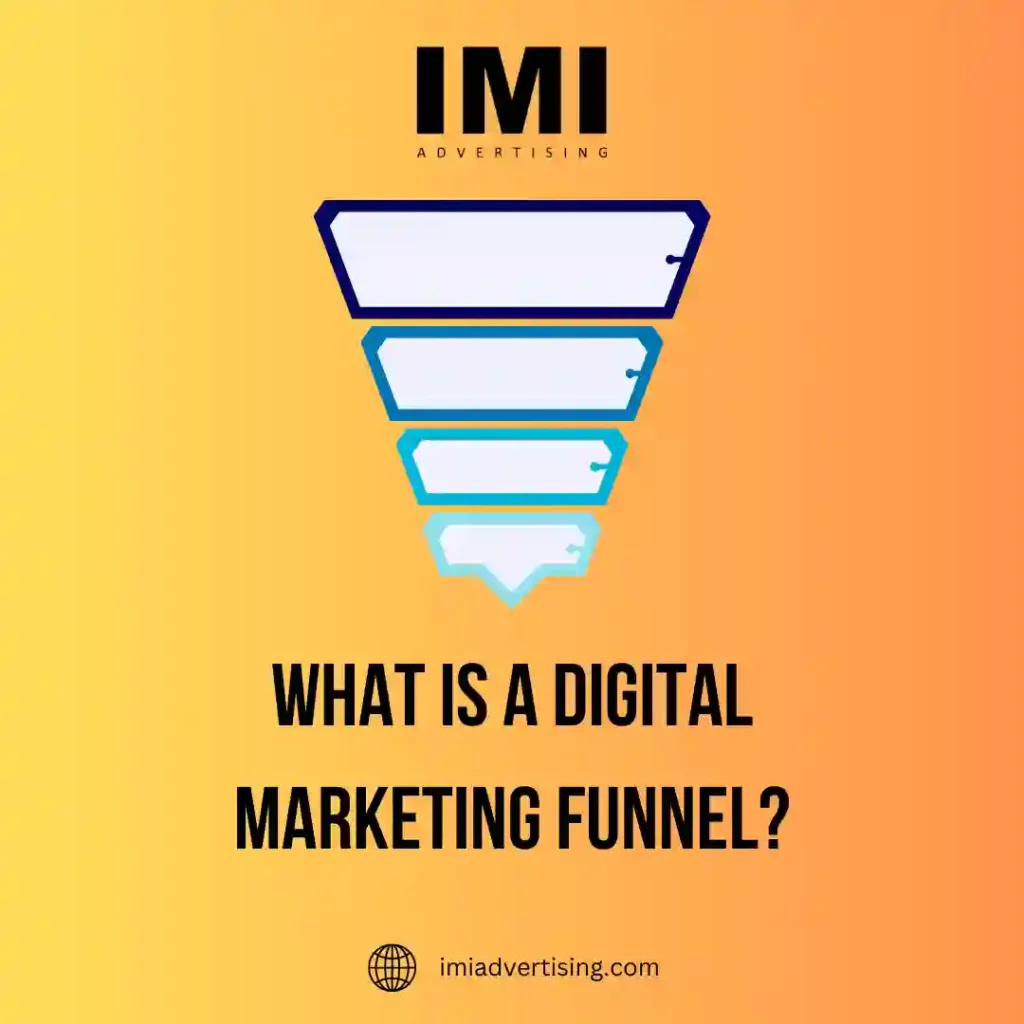What is a Digital Marketing Funnel?

A digital marketing funnel, often simply referred to as a marketing funnel, is a strategic framework that outlines the stages a potential customer goes through when interacting with a brand’s digital marketing efforts, from initial awareness to making a purchase (or taking another desired action). It’s a model used by marketers to understand and optimize the customer journey and improve conversion rates.
Here are the typical stages of a digital marketing funnel:
- Awareness: This is the top of the funnel (TOFU) stage, where potential customers become aware of your brand or product. This awareness can be generated through various digital channels, such as social media, search engines, content marketing, online ads and more.
- Interest: Once people are aware of your brand, they may develop an interest in what you offer. In this stage (MOFU – Middle of the Funnel), they might seek more information by visiting your website, reading blog posts or subscribing to your newsletter.
- Consideration: In the consideration stage, potential customers are actively evaluating your offerings. They might compare your products or services with competitors, read reviews and engage with your content to make informed decisions. This is the stage where trust and credibility play a significant role.
- Intent: At this point, potential customers have a strong interest and may be showing intent to make a purchase or take a specific action. They might add items to a shopping cart, request a demo or sign up for a trial.
- Conversion: The conversion stage is where the actual purchase or desired action occurs. This could be buying a product, signing up for a subscription, filling out a contact form or any other goal you’ve set for your marketing efforts. It’s often the primary focus of digital marketing campaigns.
- Retention: After conversion, the goal is to retain the customer and encourage repeat business or engagement. This can involve providing excellent customer support, delivering on promises and maintaining a relationship through email marketing, loyalty programs and other strategies.
- Advocacy: Happy and satisfied customers can become advocates for your brand. They might refer friends and family, leave positive reviews or engage in user-generated content. Word-of-mouth marketing is a powerful tool in this stage.
The digital marketing funnel isn’t always a linear path; potential customers can move back and forth between stages and not everyone who enters the funnel will reach the conversion stage. Marketers use various tactics, such as content marketing, email marketing, social media advertising, search engine optimization (SEO) and paid advertising, to guide individuals through the funnel and improve conversion rates.
Analyzing the funnel and understanding where potential customers drop off or show the most interest helps businesses optimize their marketing strategies to increase conversions and achieve their goals. It’s a dynamic and evolving framework that adapts to the changing behaviors and preferences of consumers in the digital landscape.
Recent Posts
-
How IMI Advertising Achieved 2X Growth in the Game Website19 Apr 2024
-
How IMI Advertising Helped iBoon Technologies to Achieve Ranking for Competitive Keywords by 68%14 Mar 2024
-
The Crucial Role of Content Freshness in SEO: Ahmedabad's Best SEO Company09 Feb 2024
-
What is a Digital Marketing Funnel?25 Sep 2023
-
10 SEO Tips for E commerce business18 Sep 2023
Have Any Question?
- 093131 00658
- [email protected]



